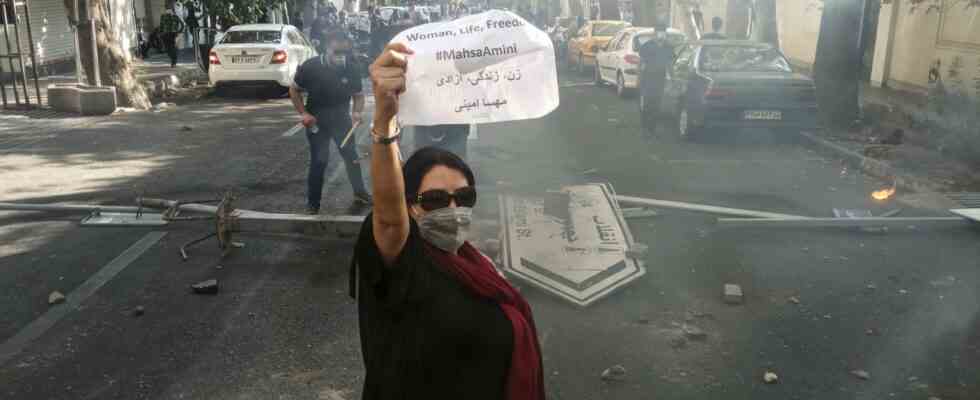A doctor known nationally as a social benefactor is about to be executed in Iran. A court sentenced 53-year-old radiologist Hamid Ghareh Hassanlou to death in early December for taking part in protests in his hometown of Karaj and helping to kill a Basij militiaman. What is particularly disturbing about the verdict is that the doctor was so severely tortured during the interrogation that he is still in a clinic with life-threatening injuries. His wife Farzaneh Ghareh Hassanlou, who was also tortured, was sentenced to 25 years of strict solitary confinement.
The Hassanlou case offers a shocking insight into the Iranian judicial system, which has turned out to be lynch law in its dealings with the protesters who have been protesting for four months. Most of those arrested for taking part in the demonstrations that began after the death of 22-year-old Mahsa Amini have not had access to their own lawyers, according to reports from their families and human rights organizations.
They do not know the indictment and are forced to confess under torture, which can lead to a death sentence. This was the case for two men who had already been executed: 23-year-old rapper Mohsen Shekari was hanged in prison after a sham trial, and 23-year-old Majidresa Rahnaward in public.
The Hassanlou case also seems completely staged according to representations from the family environment. The doctor from Karaj, father of two children, is known in Iran for his charity activities. For years he has campaigned against child labor and had schools built. According to those close to the family, neither he nor his 46-year-old wife has ever been publicly political.
The doctor was severely tortured during interrogation
What exactly happened on the evening of November 3 in Karaj near Tehran is unclear. A Basij militiaman named Ruhollah Ajamian is said to have killed two protesters during the protests, which took place on the 40th anniversary of the deaths of two protesters killed by the security forces. He was then attacked himself and seriously injured with a knife.
The doctor Hassanlou, who, according to information from those around him, was in the car with his wife, stopped to treat the injured person. He was injured in a scuffle with a knife in his hand. The Basij militiaman died. The couple drove home and were arrested there.
It is unclear whether the Hassanlous took part in the initially peaceful protests or just drove by. The basis of the charge and the conviction is the injury to the radiologist’s hand and recordings from surveillance cameras, which are incomplete, family friends said. Above all, it is undeniable that the couple was tortured. The doctor is still in the hospital. According to reports from his family, he was beaten so severely that four ribs were broken.
His injuries were so severe that they could not be treated at the prison hospital. One of the shattered ribs had punctured the left lung. So far, Hassanlou cannot be discharged from the clinic. Doctors have to remove his left lung to save his life – which the regime plans to end on the gallows. An Iranian woman who knows him says: “They want to heal him in order to kill him.”
His wife was sentenced to 25 years in solitary confinement
The process is reminiscent of arbitrary justice. According to the family environment, Hassanlou was presented in hospital linen; he had previously undergone multiple surgeries. The accused showed the court his signs of torture: severe bruises on thighs, hips and loins. Without effect. The basis of the death sentence, and this makes the case even more gruesome, does not seem to be a “confession” by the doctor, but the statement of his own wife, extracted under torture: Farzaneh Ghareh Hassanlou is said to have been hit on the head with a baton until she said her husband, along with other protesters, kicked and punched the militiaman who was lying on the ground.
Farzaneh Ghareh Hassanlou has recanted her coerced testimony in court, to no effect. The verdict against her is also barbaric: the medical laboratory technician was sentenced to 25 years in “exile imprisonment” in Ahwas in southern Iran. She is not allowed to be visited or telephoned during this time. That is equivalent to two and a half decades of solitary confinement.
From the family environment it was said that according to media reports, influential personalities had campaigned for the Hassanlous with Iran’s revolutionary leader Ayatollah Ali Khamenei, including a former minister and adviser to the spiritual leader. So far apparently without success. In the environment, however, there are still hopes that the death sentence against the doctor will be lifted and that his wife’s prison term will be reduced. “But that doesn’t happen here in Iran,” they say bitterly.
It is unclear whether the couple can appeal. The couple has since found their own lawyers. But Iran’s judiciary chief Mohseni-Edschehi had already commented on the five death sentences imposed in Karaj: “The convictions against a number of people have been confirmed and will soon be carried out.” One of those people could be Hamid Ghareh Hassanlou, the doctor and benefactor from Karaj.

